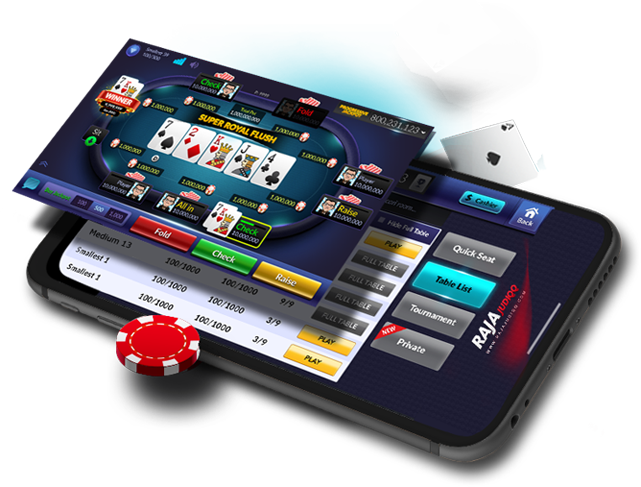- The Reviews
- UNIBET Review 2026
- MANSION Review 2026
- BETSAFE Review 2026
- BWIN Review 2026
- BETSSON Review 2026
- JETBULL Review 2026
- WILLIAM HILL Review 2026
- BET-AT-HOME Review 2026
- ZET Casino Review 2026
- CASINO.com Review 2026
- Mr GREEN Review 2026
- 888 Review 2026
- VEGAS CASINO ONLINE Review 2026
- LAS-VEGAS USA Casino Review 2026
- SUN PALACE Casino Review 2026
- ROYAL ACE Casino Review 2026
- PLANET 7 Casino Review 2026
- CLUB WORLD Casino Review 2026
- SILVER OAK Casino Review 2026
- Free Casino Games
US
- Best Online Casino Games Guide
- Choose Your Best Online Casino
- The Best Casino Games
- Online Card Games
- Best Online Machine Games
- Table Games
- Online Slots
- Complete Modern Online Blackjack Guide
- Free Blackjack Basic Strategy
- Simplified Blackjack Playing Strategy
- How to Play Blackjack Online Like Pros
- Advanced Blackjack Rules and Strategy
- Step-by-Step Blackjack Playing Procedures
- Blackjack Playing Options Guide
- Master Blackjack Card Counting
- Modern Blackjack Card Counters Challenge
- Which is the Best Blackjack Betting System?
- Nine-Count Blackjack Strategy Review
- Blackjack Myths and Errors
- Online Roulette
- Sportsbook
- Online Poker
- Online Video Poker
- Online Scratch Cards
- Online Bingo
- Online Baccarat
- Online Craps
- Asian Casino Games
- Online Keno
- Online Sic Bo
- Casino Bonuses
- Online Casino Reviews
- UNIBET Review, Casino, Sportsbook, Poker & Live Dealers
- BETSAFE Review, Casino, Poker, Live Dealers & Sportsbook
- MANSION Review, Casino, Sportsbook & Live Dealers
- BWIN Review, Sportsbook, Casino, Poker & Live Dealers
- BETSSON Review, Sportsbook, Casino, Live Dealers, Poker
- JETBULL Review -Casino, Sportsbook, Live Dealers
- BET_AT_HOME Review, Sportsbook, Casino, Poker, Live Dealers
- WILLIAM HILL Review -Casino, Sportsbook, Live Dealers, Poker
- ZET Casino Review
- Mr GREEN Review -Casino, Sportsbook & Live Dealers
- CASINO.com Review -Online Casino & Live Dealers
- Las-Vegas USA Casino Review
- Sun Palace Casino Review
- Royal Ace Casino Review
- Planet 7 Casino Review
- Club World Casino Review
- Vegas Casino Online Review
- Silver Oak Casino Review
- Free Casino Games
Online Poker 2026
Poker looks like it is here to stay and its popularity has never been as widespread nor as quickly growing as it is right now. With the wealth of poker information available online, and the relative ease of logging on and playing with other poker players from around the world, including the ever-growing online poker community in the United Kingdom, there is no time like the present to join the poker craze. Play online poker now by clicking through to our list of the best poker rooms.

Bonus: Just make your first deposit of $25 or more and boost your bankroll as you get your feet wet!
- First, ACR supercharges your bankroll with a 100% match bonus up to $1,000.
- $50 Free Cash if you login every day for 20 days and take advantage of our Spin Cards promotion
- ADDED BONUS! If you make your first deposit using any cryptocurrency ACR will double the bonus amount to 200% up to $1,000
Website: https://www.americascardroom.eu
Network: Winning Poker Network
Online Since: 2001
Location: Cyprus
Games: Texas Hold’em, Omaha, Stud
Software: Windows, Mac, iOS, Android
Deposit: Visa, Mastercard, Ria, Cash Transfer (WU, MG), Bitcoin, Bitcoin Cash, Ethereum, Litecoin, Dash, many other cryptocurrencies
Withdrawals: Check, Cash Transfer, Bitcoin, other cryptocurrencies
Player Traffic: Very high
A Free Game starts every 2 Hours
Website: http://www.unibet.com
Software: Microgaming, NetEnt, GTS, Nyx Interactive, Play’n GO, IGT (WagerWorks), Jadestone, Blueprint Gaming, Genesis Gaming, Quickspin, Relax Gaming, Thunderkick, Push Gaming, Skillzzgaming
Deposit Methods: Bank Wire Transfer, Maestro, MasterCard, Neteller, Paysafe Card, Ukash, Visa Electron, Visa, Skrill
Withdrawal Methods: Bank Wire Transfer, Neteller, Visa Electron, Visa, Skrill
Withdrawal Times:
- EWallets: 24-48 hours
- Credit / Debit Cards: 3-10 days
- Bank Transfers: 3-10 days
- Cheques: Not offered
- Pending Time: 12-24 hours
Withdrawal Limit: No Limits
Affiliate Program: Kindred Affiliates
Bonus: 100% up to $500
Website: https://www.bovada.lv/poker/
US Players: Yes
Network: PaiWangLuo
Online Since: 2004
Traffic: No 1 in the US market
Owner: Lynton Ltd.
Location: Costa Rica
Games: Texas Hold’em, Omaha, Omaha Hi/Lo
Software: Windows, Mac, iOS, Android, No-Download Instant Play
Deposit: Bitcoin, Bitcoin Cash, Visa, Mastercard, American Express (Amex)
Minimum Deposit: $25
Withdrawals: Bitcoin, Check, Wire Transfer
Mobile: Yes
Languages: English, Spanish, Chinese
Anonymous Tables: Available
Bonus: 100% up to $1,000 + 25% if you deposit with Bitcoin
Website: https://www.ignitioncasino.eu
US Players: Yes
Network: PaiWangLuo
Online Since: 2016 (but they started in 2000 with another name)
Traffic: No 1 in the US market
Owner: Lynton Ltd.
Location & license: Costa Rica
Games: Texas Hold’em, Omaha
Software: Windows, Mac, iOS, Android
Deposit: Bitcoin, Visa, Mastercard
Withdrawals: Bitcoin, Check, Wire Transfer
Mobile: Yes
Languages: English, Spanish, Chinese
Anonymous Tables: Available
Bonus: Get $88 free. No deposit needed
Website: www.888Poker.com
Established: 2002
Licensed: Gibraltar
Multi-Tabling: 20
Traffic: Extremely High
Players competition: many less-experienced poker players
Mac Compatible: Yes
US Friendly: No (except NJ)
Owner: 888 Poker is operated by 888 Holdings plc, a subsidiary of Cassava Enterprises Ltd which is under the laws of Gibraltar. 888 Holdings is listed on the London Stock Exchange
Games: Texas Hold’em, Omaha poker, and Seven-Card Stud.
Audited: reviewed and certified by eCorga under their “Card Shuffling Review”.
Awards: 888 Poker won In 2013 the EGR Operator Awards for best poker operator of the year.
Bonus: Deposit $20 and get $30 in tickets and bonuses:
- Day 1: 3x $2 fastforward cash bonus + 3x $1 SPINS ticket
- Day 2: 5x $1 SPINS ticket
- Day 3: 3x $2 fast-forward cash bonus
- Day 4: 4x $1 SPINS ticket
- Day 5: 3x $2 fast-forward cash bonus
Website: https://partypoker.com
Deposits: Visa, Mastercard, PayPal, NETELLER, Skrill, Diners Club, Paysafecard, EntroPay, Maestro, Bank Transfer, Instadebit, ecoPayz
Withdrawals: Visa, Mastercard, PayPal, NETELLER, Skrill, Diners Club, EntroPay, Maestro, ecoPayz
Established: 2001
Licensed: Gibraltar Gambling Authority and UK Gambling Commission.
Location: Malta
Traffic: High, worldwide
Players competition: many less-experienced poker players
Mac Compatible: Yes
US Friendly: No
Owner: GVC Holdings.
Network: Party Poker proprietary network
Games: Texas Hold’em, Omaha Poker, and Seven-Card Stud.
Software: Windows, Mac, iOS, Android
Languages: English, Deutsch, Español, Français, Română, Русский, Polski, Svenska, Magyar, Português (Brasil)
The Poker Game
Poker is a family of card games involving betting and individualistic play whereby the winner is determined by the ranks and combinations of their cards, some of which remain hidden until the end of the game.
Poker games vary in the number of cards dealt, the number of shared or “community” cards and the number of cards that remain hidden.
The betting procedures vary among different poker games in such ways as betting limits and splitting the pot between a high hand and a low hand.
In most modern poker games, the first round of betting begins with one of the players making some form of a forced bet (the ante).
In standard poker, each player is betting that the hand he has will be the highest-ranked. The action then proceeds clockwise around the table and each player, in turn, must either match the maximum previous bet or fold, losing the amount bet so far and all further interest in the hand.
A player who matches a bet may also “raise,” or increase the bet. The betting round ends when all players have either matched the last bet or folded. If all but one player fold on any round, then the remaining player collects the pot and may choose to show or conceal their hand.
If more than one player remains in contention after the final betting round, the hands are revealed and the player with the winning hand takes the pot. With the exception of initial forced bets, money is only placed into the pot voluntarily by a player who, at least in theory, rationally believes the bet has the positive expected value.
Thus, while the outcome of any particular hand significantly involves chance, the long-run expectations of the players are determined by their actions chosen on the basis of probability, psychology and game theory.

The History of Poker
The history of Poker is thought to have evolved over more than ten centuries from various games, all involving the basic principals of ranked card or domino combinations and the use of ‘bluffing’ to deceive opponents.
One popular belief is that a game similar to poker was first invented by the Chinese sometime before 969 A.D when Emperor Mu-Tsung is reported to have played “domino cards” with his wife on New Year’s eve.
Egyptians in the 12th & 13th centuries are known to have used a form of playing cards, and in the 16th century, Persia “Ganjifa” or “Treasure Cards” were used for a variety of betting games. A Ganjifa deck consisted of 96 elaborate cards, often made of paper-thin slices of ivory or precious wood. The Persians played “As Nas” which utilized 25 cards, rounds of betting and hierarchical hand rankings.
A French game named “Poque” and a German game named “Pochen” became very popular in the 17 & 18th centuries, both developed from the 16th-century Spanish game called “Primero” which involved three cards being dealt with with each player. Bluffing, or betting high stakes whilst holding poor cards to deceive opponents, was an integral part of the game. Primero dates back to 1526 and is often referred to as “poker’s mother” as it is the first confirmed version of a game directly related to modern-day poker.
French colonials imported the game to the new world when they arrived in Canada. Their beloved Poque was the national card game of France and from the beginning of the 18th century, when a hardy group of French-Canadian settlers founded New Orleans, it spread from the state of Louisiana up the Mississippi River and then throughout the whole country.
In 1834, Jonathan H. Green made one of the earliest written references to poker when in his writing he mentions rules to the “cheating game,” being played on Mississippi riverboats. The Cheating Game” quickly began to supplant the popular cardsharp game of 3-card monte on the gambling circuit. Gamers embraced the new game as it was perceived as a more challenging and ‘honest’ gamble than the notoriously rigged 3-card game. Green took more than a passing interest in the new game and took it upon himself to formally name and document the ‘Cheating Game’ in his book ‘An Exposure of the Arts and Miseries of Gambling’: Poker was born.
During the Wild West period of United States history, a saloon with a Poker table could be found in just about every town from coast to coast. It was extremely popular during the Civil War when the soldiers of both armies played. European influence of poker ended when the joker was introduced as a wild card in 1875.
In just over two centuries, poker has never looked back. Since its humble beginning on the banks of the Mississippi, the popularity of this widely played game has grown in leaps and bounds to evolve numerous variations and sub-variations.
There have been three games that have, in turn, dominated the modern poker scene:
- 5 Card Draw rose from relative obscurity during the American Civil War to the most popular game for almost a century.
Nevada made it a felony to run a betting game. However, the Attorney General of California declared that draw poker was based upon skill and therefore the anti-gambling laws could not stop it. But stud poker was still deemed illegal as it was based solely on chance. With this decision, draw poker games developed and grew. This caused Nevada to reverse itself in 1931 and legalize casino gambling.
- 7 Card Stud then took over the throne shortly before WWII and maintained its position for about 40 years with the help of the new and thriving Las Vegas casino industry.
- Texas Hold’em christened the ‘Cadillac of poker’ rose to prominence in the 1970s when it was featured as the title game in the World Series of Poker. Today, Texas Hold’em is indisputably the most frequently played and most popular poker game in the world, played in casinos and on home game tables the world over.
Other variations such as Omaha, Stud Poker, Manila, Draw Poker and Razz are also popular, but nothing can compete with the thrill of No-Limit Texas Hold’em.
No-Limit Texas Hold’em played at The World Series of Poker and the World Poker Tour have been captivating American television audiences to the point that there are now made for TV events such as the National Heads Up Poker Championship and the World Series of Poker Tournament of Champions being filmed especially for TV and shown in prime time.
Was This Helpful?
Recommend us on Facebook






